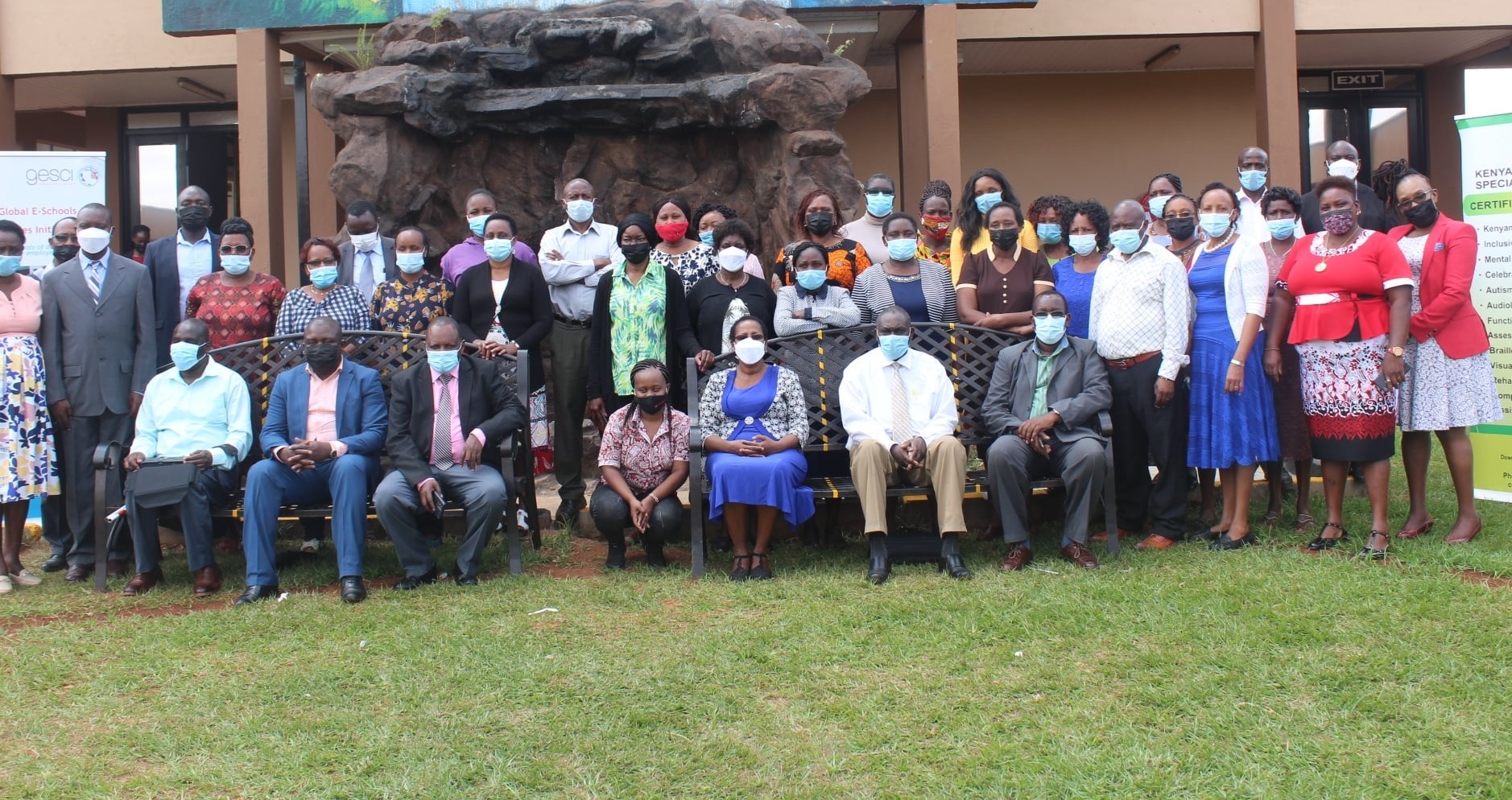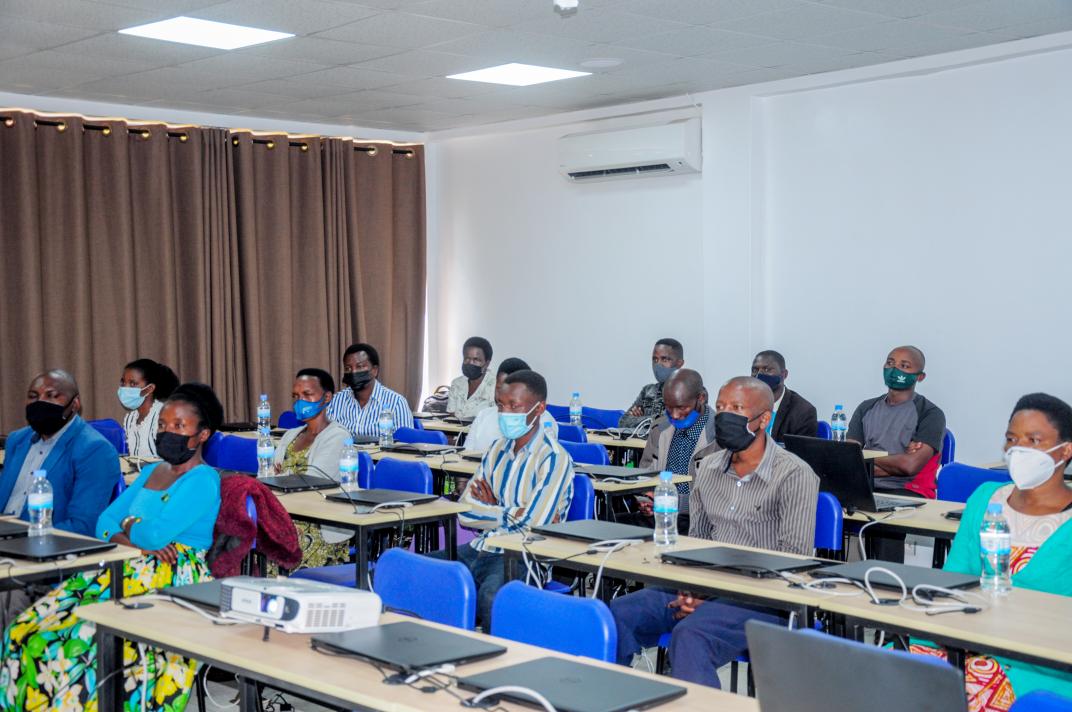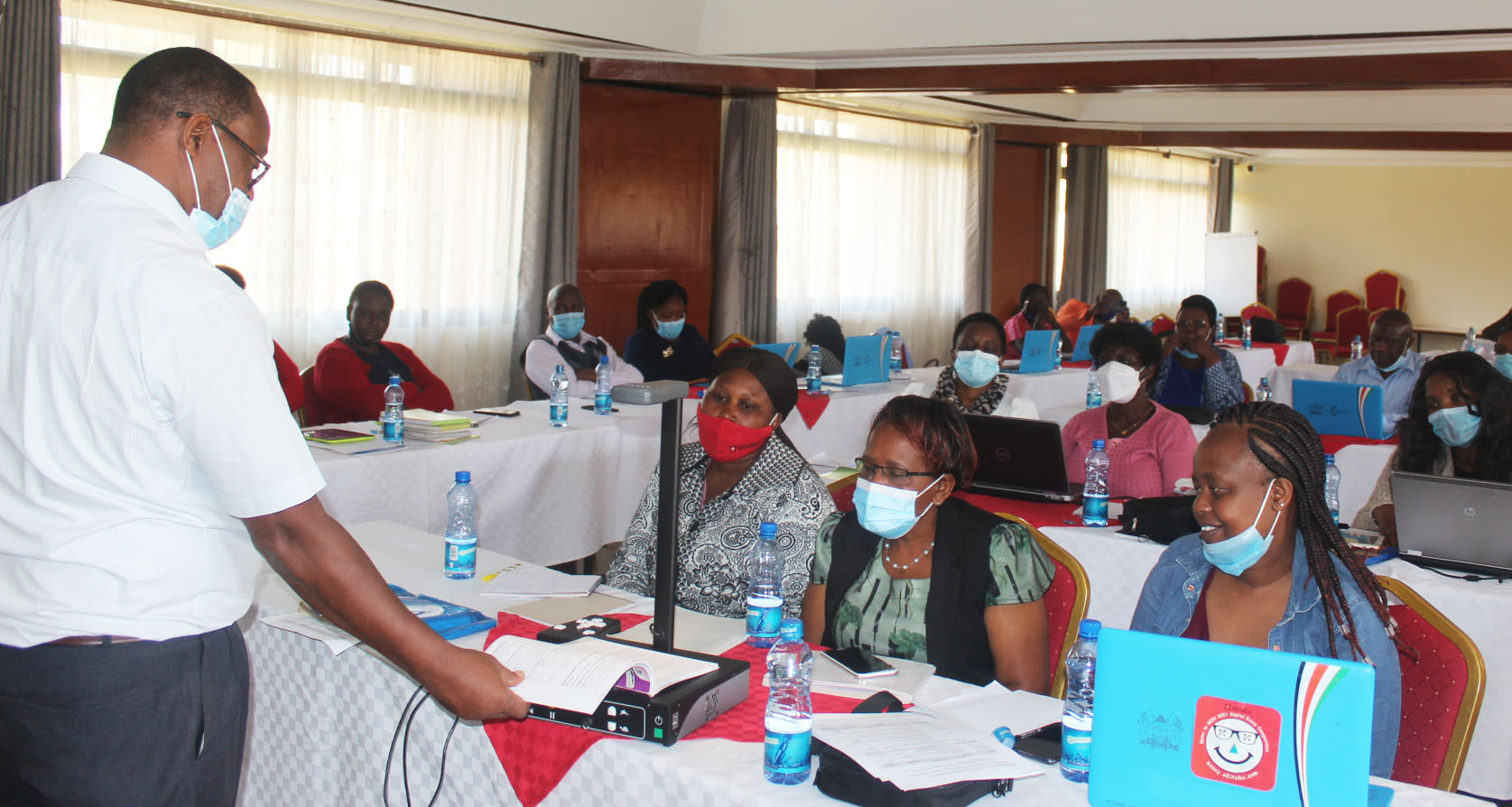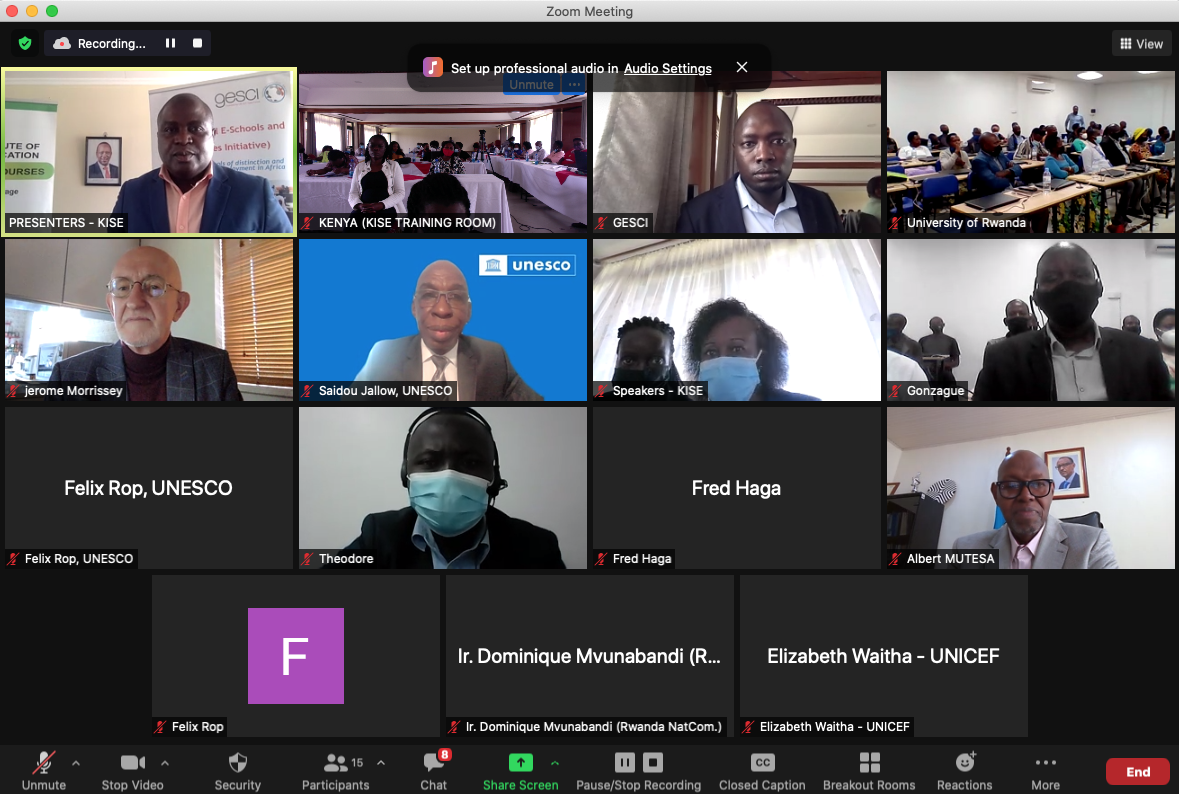The UNESCO Regional Office in Nairobi in close collaboration with ministries of Education in Kenya and Rwanda and GESCI organized a 5-day training for teachers handling learners at Early Years of Education.The training focuses on the use of assistive technologies and interactive digital textbooks to improve learning outcomes. Teachers from 30 districts in Rwanda and 4 counties in Kenya are going through the 5-day training.
The hybrid opening ceremony brought together participants from The UNESCO Regional Office in Nairobi, Kenya and Rwanda who joined in from the Kenya Institute of Special Education and University of Rwanda respectively,The Rwanda Basic Education Board, The Ministry of Education Kenya,UNICEF,The National Commission for UNESCO Rwanda and GESCI.
GESCI CEO Mr. Jerome Morrissey welcomed participants to comprehensive 5- day workshop saying there is limited use of technology in terms of devices and softwares in the special education space.”It’s time that all players in education leverage the available technologies and ensure they available at affordable costs so that teachers can use them effectively in teaching and learning.” He concluded.
Setting the stage and echoing the need for assistive technologies, Peter Luthoron, a lecturer and user of these technologies said that technology has enabled him and given him some sense of independence since he can use the Orbit Reader to read his emails and messages.
Dr. Norman Kiogora of the Kenya Institute of Special Education reminded the participants that persons with disabilities opportunities to thrive and this comes through technology. “I am happy that the Accessible Digital Textbooks training is bringing together all personnel passionate about inclusion in this initiative.” he added.
Dr Habinshuti Gonzague, lecturer school of inclusive education, University of Rwanda spoke on behalf of Dr. Florien Nsanganwimana, the Ag. Principal College of Education.He said this workshop has come at a perfect time when schools are starting to implement inclusive education at whole school level.
Speaking on behalf of Dr. Christine Niyizamwiyitira, Head of Department of ICT in Education Rwanda Basic Education Board,Theodore Ngendahayo said “We thank all partners for the collaboration in this initiative to conduct professional development for Rwanda teachers, especially those in the inclusive education space.I urge the teachers to stay keen and ensure the skills acquired in the 5 days are implemented t teach Rwanda children living with disabilities.”
Fred Haga, Director, Special Needs Education Directorate, Ministry of Education Kenya mentioned that this training is a critical activity for the ministry since his directorate was established to coordinate access to quality education for learners with special needs because the ministry wants to ensure no one is left behind.
Mr. Albert Mutesa, Secretary General Rwanda National Commission for UNESCO talked about the commission’s involvement in helping the Ministry achieve inclusive education through participation in consultative meetings on the Ratified Marrakesh Treaty.
“We are facing many Challenges in supporting children with different disabilities at School. This is because when we were pursuing education, we were not equipped with knowledge and skills to teach children with special needs”
Pascal Bucyensenge, a teacher at Kabirizi Primary School in Rubavu District, Rwanda
In his keynote address, Dr. Saidou Sireh Jallow, Senior Program Specialist – Chief of Education, UNESCO Regional Office for Eastern Africa, Nairobi said “The inaccessibility of core learning materials is one of the major barriers to inclusive education.”
“However, the proper use of available ICTs and the creation and adaptation of Accessible Digital Learning Materials, as well as the application of the Universal Design for Learning (UDL) principles, can help ensure that educational materials are accessible,” he added.
Dr. Jallow went on to say that progress on inclusion in education should start with ensuring that Teachers have the required skills and competencies to support learning and enhance students' digital skills through the use of ICT. Teacher training and on-going relevant professional development is essential if benefits from investments in ICTs are to be maximized.
He stated that UNICEF, together with other stakeholders, particularly, KICD, the Rwanda Education Board (REB) and eKitabu have already developed pilot ADTs (Accessible Digital Textbooks) using Universal Design for Learning (UDL) and within the framework of the ADT programme, UNESCO is and will continue building on these efforts by supporting training to enhance the capacity of teachers on the use of interactive Accessible Digital Textbooks and adapting content to improve learning outcomes to ensure inclusive education and access to information for PwDs.
The overall objective of this training is to ensure teaching and learning for learners with disabilities is made more inclusive and accommodating, in line with the United Nations Convention on the Rights of Persons with Disabilities (2006) and Sustainable Development Goal 4 which aims to ensure inclusive and equitable quality education and promote lifelong learning opportunities for all.
A similar training will be conducted in Uganda from 18th - 22nd October, 2021.
The ADT Project is implemented by UNESCO in partnership with GESCI and is funded by the United Nations Partnerships on the Rights of Persons with Disabilities (UNPRPD).




